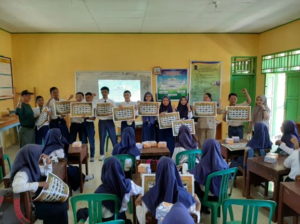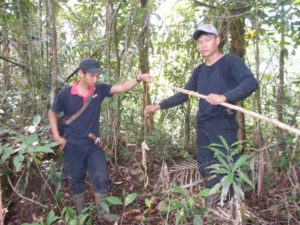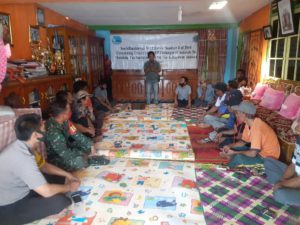We’re delighted to announce that Auckland Zoo will once again support the work of Lingkar Institute with a donation to WildCats of NZ$20,000. The Auckland Zoo Conservation Fund has been funding wild tiger conservation since 2006 and donated over £95,000 first through 21st Century Tiger and now through WildCats.
This grant funds the ongoing groundbreaking work of Lingkar Institute which uses Islamic perspectives and values to engage with communities and schools in the Lebong district of Bengkulu which borders the Kerinci Seblat National Park. To strengthen tiger protection in this area, activities mobilise religious leaders in Lebong to socialise a Fatwa issued by the Indonesian Council of Islamic Scholars (Majelis Ulama Indonesia) which prohibits Muslims to hunt rare and endangered wildlife such as Sumatran tiger.
This ground-breaking religious ruling was issued nationally in 2014 but is only now being communicated to mosque congregations at a local level in Sumatra and so very few of the predominantly Muslim community in Lebong district are aware that that the hunting of rare animals such as tigers is not only illegal under Indonesian national law but also forbidden under Islam.
Lingkar also organises Rapid Response patrols or Unit Reaksi Cepat comprised local national park rangers and officers of other government agencies, including Lebong district police, to work in key forest-edge areas to strengthen and extend information networks to secure information on the suspected active threat to tiger.
The unique nature of this project continues to expand in 2020/21 with the piloting of a ‘foster’ or guardianship procedure to support poachers upon release from prison or a known/suspected recidivist to secure long-term change in their behaviour in a country where there is no ‘parole’ system or post-release supervision or support or ‘care in the community’ scheme for ex-offenders.
The project team will work with a range of experts to develop a scientifically based strategy to measure how effective the engagement is with communities in changing behaviours toward poaching and developing a feeling of forest stewardship.




